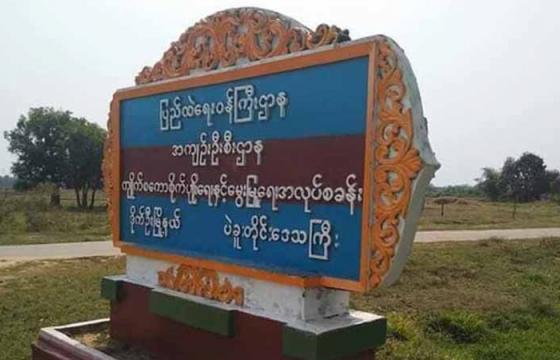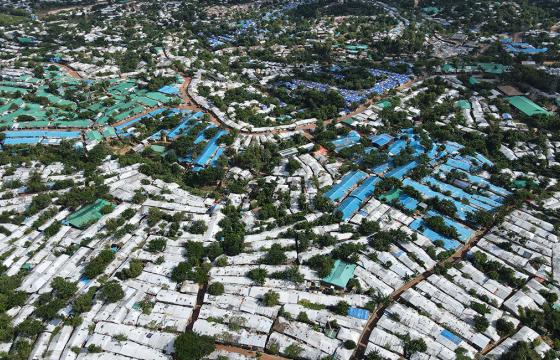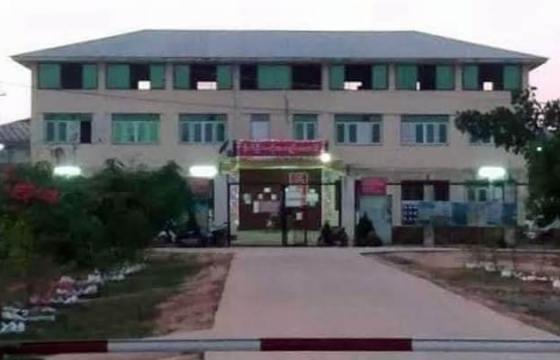Essential commodity prices in Maungdaw, Arakan State soared after Cyclone Komen and flash floods recently hit in northern Arakan State, said a trader from Maungdaw Town who preferred not to be named.
He said: “The prices of rice, onion, sugar. Edible oil and other things have been skyrocketing in Maungdaw and Buthidaung Townships.”
According to the trader before the flooding, a 50 kg rice bag was sold for 15,000 to 20,000 kyats. After the cyclone and floods hit 50 kg bags of rice were being sold for 35,000 to 27,000 kyats, at present they cost 23,000 kyats. A Viss (One Viss is 1.63kg) of sugar previously cost 1,200 kyats, now it costs 1,800 kyats. Previously onions were 1,000 kyats a viss, now they cost 2,300 kyats and cooking oil has gone up from 2,000 kyats a viss to 2,800 kyats a viss.
Twelve out of 14 states and regions in Burma have suffered flooding. According to the UN Office for the Coordination of Humanitarian Affairs (OCHA) 1.1 million people have been badly affected by flooding, with at least 103 confirmed dead and over 689,000 acres of farmland have been destroyed.
According to the Arakan (Rakhine) State Government, Buthidaung, Kyauktaw, Minbya, Maungdaw and Mrauk-Oo are the most severely affected areas in Arakan State.
Initial assessments in Arakan indicate that flooding has severely damaged the rice harvest. Many water wells have been contaminated by flood waters and salt water, according to an Arakan State Government report.
Mohamed Noor, a shopkeeper from northern Maungdaw Town said that since 10 August Rohingya people from the northern and southern parts of Maungdaw Town who do not have green identity cards have been banned from going into the centre of Maungdaw Town to buy food, medicines and other essential items, which has led to a scarcity of medicines and essential goods in rural areas.
Earlier this year Rohingyas were ordered, by law, to hand in their white ID cards and in return they were told they would later receive green ID cards, which the government started to issue in the last few weeks. Many Rohingyas refused to hand in their white cards because they felt they were the only thing that identified them as Burmese citizens and they were scared that they would not be issued with the replacement green ID cards. They also had to identify themselves as Bengali to receive the newer ID cards and many were worried that if they did so the government would, in the future, classify them as foreigners and evict them from Burma.
Ahmed Hussin, a young man from Maungdaw, said that whilst the government has supplied all flood affected Natala (Buddhist Rakhine) villagers with a mat, a mosquito net, a water filter, a tooth brush, toothpaste, clothes and a blanket, they have given no aid to the Rohingya community
It has been confirmed that four people died in Maungdaw due to the flooding and unconfirmed reports say that 20 people were killed in Buthidaung. Many rice paddy fields in the two townships were also destroyed.
Edited in English by Mark Inkey for BNI







